Proxy Lab
Web Proxy?
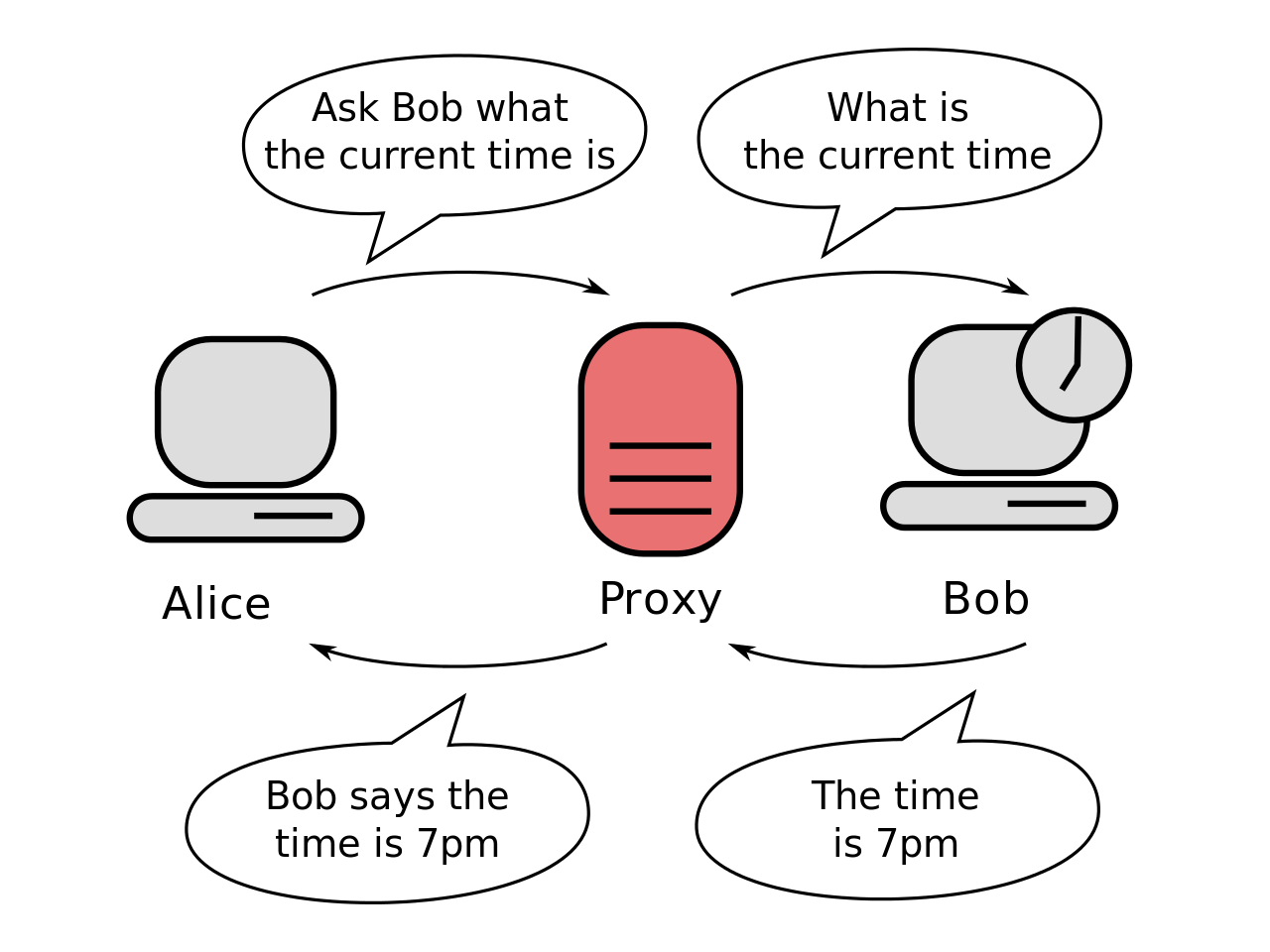
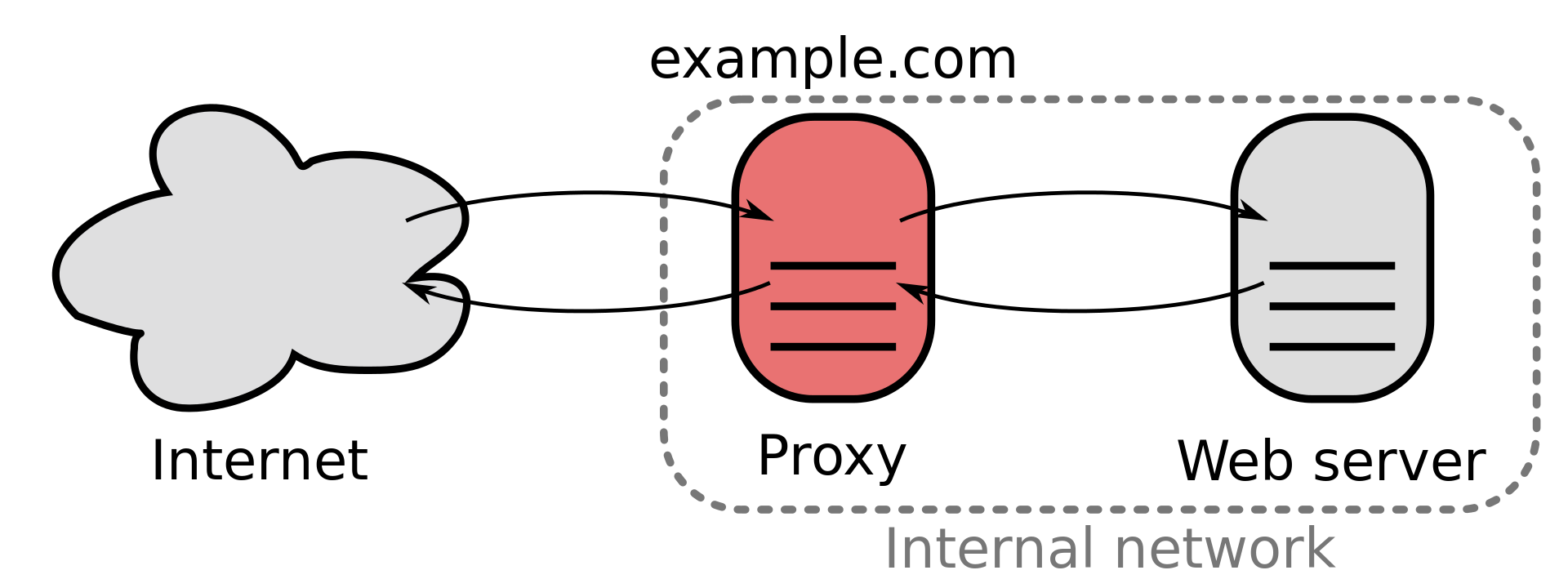
A Web proxy is a program that acts as a middleman between a Web browser and an end server.
Purpose
-
Proxies are used in firewalls
-
Act as anonymizers, proxy can make the browser anonymous to Web servers
-
Responding to future requests by reading them out of its cache rather than by communicating again with remote servers
Goal
Write a simple HTTP proxy that caches web objects
First part
Set up the proxy to accept incoming connections, read and parse requests, forward requests to web servers, read the servers’ responses, and forward those responses to the corresponding clients.
will involve learning about basic HTTP operation and how to use sockets to write programs that communicate over network connections.
Second part
Upgrade your proxy to deal with multiple concurrent connections.
To dealing with concurrency, a crucial systems concept.
Third and last part
Add caching to your proxy using a simple main memory cache of recently accessed web content.
Part 1: Implementing a sequential web proxy
Implementing a basic sequential proxy that handles HTTP/1.0 GET requests.
Finally, your proxy should read the server’s response and forward it to the client.
소스코드
#include <stdio.h>
#include "csapp.h"
/* Recommended max cache and object sizes */
#define MAX_CACHE_SIZE 1049000
#define MAX_OBJECT_SIZE 102400
/* You won't lose style points for including this long line in your code */
static const char *user_agent_hdr = "User-Agent: Mozilla/5.0 (X11; Linux x86_64; rv:10.0.3) Gecko/20120305 Firefox/10.0.3\r\n";
static const char *conn_hdr = "Connection: close\r\n";
static const char *prox_hdr = "Proxy-Connection: close\r\n";
static const char *host_hdr_format = "Host: %s\r\n";
static const char *requestlint_hdr_format = "GET %s HTTP/1.0\r\n";
static const char *endof_hdr = "\r\n";
static const char *connection_key = "Connection";
static const char *user_agent_key= "User-Agent";
static const char *proxy_connection_key = "Proxy-Connection";
static const char *host_key = "Host";
void doit(int connfd);
void parse_uri(char *uri,char *hostname,char *path,int *port);
void build_http_header(char *http_header,char *hostname,char *path,int port,rio_t *client_rio);
int connect_endServer(char *hostname,int port,char *http_header);
int main(int argc,char **argv)
{
int listenfd,connfd;
socklen_t clientlen;
char hostname[MAXLINE],port[MAXLINE];
struct sockaddr_storage clientaddr;/*generic sockaddr struct which is 28 Bytes.The same use as sockaddr*/
if(argc != 2){
fprintf(stderr,"usage :%s <port> \n",argv[0]);
exit(1);
}
listenfd = Open_listenfd(argv[1]);
while(1){
clientlen = sizeof(clientaddr);
connfd = Accept(listenfd,(SA *)&clientaddr,&clientlen);
/*print accepted message*/
Getnameinfo((SA*)&clientaddr,clientlen,hostname,MAXLINE,port,MAXLINE,0);
printf("Accepted connection from (%s %s).\n",hostname,port);
/*sequential handle the client transaction*/
doit(connfd);
Close(connfd);
}
return 0;
}
/*handle the client HTTP transaction*/
void doit(int connfd)
{
int end_serverfd;/*the end server file descriptor*/
char buf[MAXLINE],method[MAXLINE],uri[MAXLINE],version[MAXLINE];
char endserver_http_header [MAXLINE];
/*store the request line arguments*/
char hostname[MAXLINE],path[MAXLINE];
int port;
rio_t rio,server_rio;/*rio is client's rio,server_rio is endserver's rio*/
Rio_readinitb(&rio,connfd);
Rio_readlineb(&rio,buf,MAXLINE);
sscanf(buf,"%s %s %s",method,uri,version); /*read the client request line*/
if(strcasecmp(method,"GET")){
printf("Proxy does not implement the method");
return;
}
/*parse the uri to get hostname,file path ,port*/
parse_uri(uri,hostname,path,&port);
/*build the http header which will send to the end server*/
build_http_header(endserver_http_header,hostname,path,port,&rio);
/*connect to the end server*/
end_serverfd = connect_endServer(hostname,port,endserver_http_header);
if(end_serverfd<0){
printf("connection failed\n");
return;
}
Rio_readinitb(&server_rio,end_serverfd);
/*write the http header to endserver*/
Rio_writen(end_serverfd,endserver_http_header,strlen(endserver_http_header));
/*receive message from end server and send to the client*/
size_t n;
while((n=Rio_readlineb(&server_rio,buf,MAXLINE))!=0)
{
printf("proxy received %d bytes,then send\n",n);
Rio_writen(connfd,buf,n);
}
Close(end_serverfd);
}
void build_http_header(char *http_header,char *hostname,char *path,int port,rio_t *client_rio)
{
char buf[MAXLINE],request_hdr[MAXLINE],other_hdr[MAXLINE],host_hdr[MAXLINE];
/*request line*/
sprintf(request_hdr,requestlint_hdr_format,path);
/*get other request header for client rio and change it */
while(Rio_readlineb(client_rio,buf,MAXLINE)>0)
{
if(strcmp(buf,endof_hdr)==0) break;/*EOF*/
if(!strncasecmp(buf,host_key,strlen(host_key)))/*Host:*/
{
strcpy(host_hdr,buf);
continue;
}
if(!strncasecmp(buf,connection_key,strlen(connection_key))
&&!strncasecmp(buf,proxy_connection_key,strlen(proxy_connection_key))
&&!strncasecmp(buf,user_agent_key,strlen(user_agent_key)))
{
strcat(other_hdr,buf);
}
}
if(strlen(host_hdr)==0)
{
sprintf(host_hdr,host_hdr_format,hostname);
}
sprintf(http_header,"%s%s%s%s%s%s%s",
request_hdr,
host_hdr,
conn_hdr,
prox_hdr,
user_agent_hdr,
other_hdr,
endof_hdr);
return ;
}
/*Connect to the end server*/
inline int connect_endServer(char *hostname,int port,char *http_header){
char portStr[100];
sprintf(portStr,"%d",port);
return Open_clientfd(hostname,portStr);
}
/*parse the uri to get hostname,file path ,port*/
void parse_uri(char *uri,char *hostname,char *path,int *port)
{
*port = 80;
char* pos = strstr(uri,"//");
pos = pos!=NULL? pos+2:uri;
char*pos2 = strstr(pos,":");
if(pos2!=NULL)
{
*pos2 = '\0';
sscanf(pos,"%s",hostname);
sscanf(pos2+1,"%d%s",port,path);
}
else
{
pos2 = strstr(pos,"/");
if(pos2!=NULL)
{
*pos2 = '\0';
sscanf(pos,"%s",hostname);
*pos2 = '/';
sscanf(pos2,"%s",path);
}
else
{
sscanf(pos,"%s",hostname);
}
}
return;
}실습 과정
# proxy 서버 실행
./proxy 8888# Tiny 서버 실행
./tiny 8484# telnet으로 Proxy 서버 접속
telnet localhost 8888
GET http://localhost:8484/home.html
# GET localhost:8484/home.html 로 해도 됨호스트가 telnet을 통해 proxy서버로 접속한 뒤 tiny 서버 주소로 GET 메서드를 요청(Request)하면, proxy 서버를 거친 후 tiny 서버에 GET 메서드 요청이 전해진다. 아래는proxy 서버가 tiny 서버로부터 받은(Response) 데이터 양이 echo된 화면이다.
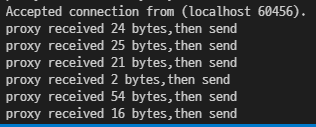
결과적으로 아래와 같이 호스트에 헤더와 바디 정보를 보내준다.
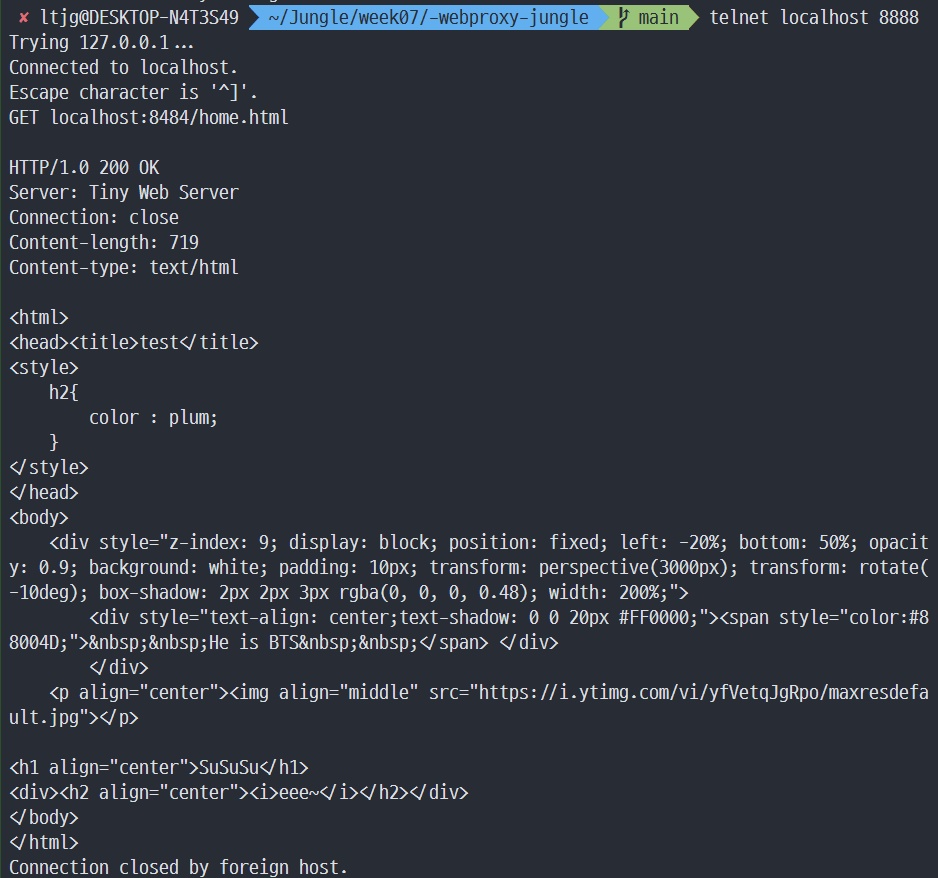
tiny 서버에서는 아래와 같이 Request와 Response 헤더 정보가 출력된다.
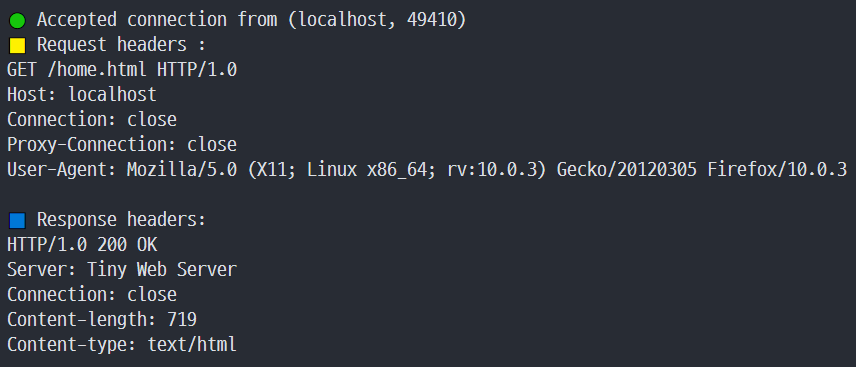

CSAPP Proxy Lab is a great way to dive into networking and understand how proxies work! If you're looking for a real-world proxy tool, check out https://croxyproxy.app/ —a free web proxy that helps bypass restrictions and browse securely. It's a handy tool alongside learning the fundamentals of proxy servers! 🚀